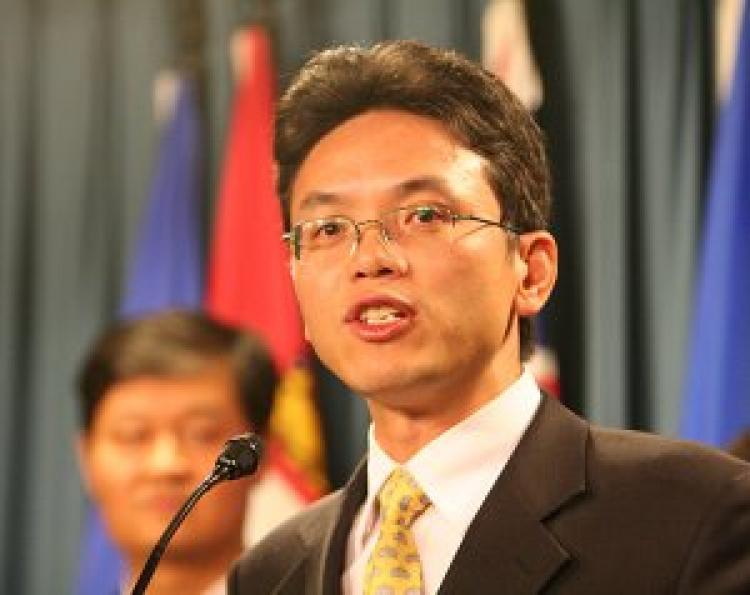
TORONTO—Canada’s chief intelligence official Richard Fadden met outraged cries after comments in a CBC interview last month that foreign countries were cultivating influence over Canadian officials. But at least one of the groups decrying the director of the Canadian Security Intelligence Service (CSIS) is allegedly a front organization engaged in exactly that kind of activity in Canada.
On Friday, two staunchly pro-Beijing groups, the National Congress of Chinese Canadians (NCCC) Pacific region, and the Chinese Benevolent Association of Vancouver, organized a press conference in Vancouver and issued a joint statement saying Fadden needed to elaborate on his comments or risk painting all Chinese with the same brush.
The groups asked Fadden to come speak with them and explain his comments and hear about the ramifications his comments had in the Chinese community. They also said his comments could damage Canada-China relations.
Both groups purport to represent the interests of Chinese Canadians, with the NCCC representing itself as an umbrella organization of Canadian organizations across the country that works to promote unity among Chinese Canadians and help them integrate into Canadian society.
But the NCCC has a history that casts its intentions in a questionable light, with some accusing it of working as a front organization advancing the interests of the Chinese Communist Party (CCP). The Epoch Times called several of the groups executives but messages were not returned.
Chen Yonglin was the first secretary at the Chinese consulate in Sydney, Australia, until he defected in 2005. He revealed documents showing how consulates in Australia and around the world cooperate and use front organizations to suppress dissident groups.
The NCCC and its equivalents in other countries are at the top of a pyramid of groups set up by the Chinese embassy and consulates in Canada charged with working to control and influence the Chinese community and Canadian government, said Chen. He noted that the group was founded to push Canada to thaw diplomacy with China following the 1989 Tiananmen Square massacre.
Chen says the NCCC regularly lobbies the Canadian government to take positions favourable to the Chinese regime and also works to rally Canadian Chinese towards those positions.
The NCCC’s ties to the Chinese regime are long and well-documented. They include having executive members with ties to state-controlled Chinese media, and businesses that rely on a close relationship with the Chinese consulate.
But it is the work of the NCCC in Canada that raises concerns for Canadian intelligence personnel, said Michel Juneau-Katsuya, former head of the Asia desk for CSIS and author of Nest of Spies.
Juneau-Katsuya said the group has long been suspected by many intelligence organizations around the world of being a megaphone for the Chinese regime. The group, and its Canadian head, Ping Tan, have taken Beijing’s position against Tibetans, Falun Gong practitioners, and the Tiananmen Square massacre, among other issues.
In Canada, the NCCC purports to represent 280 Canadian Chinese organization but has never been able to accurately list them and has ignored repeated requests from the Epoch Times to do so. It has also been unable to provide a position it has taken on a sensitive topic that differs significantly from the Chinese regime.
When the Beijing Olympics in 2008 encountered controversy and the crackdown in Tibet made world headlines, the NCCC Pacific region was among the groups joining rallies denouncing “biased” western media and the Dalai Lama.
CONTINUED on Page 2...




